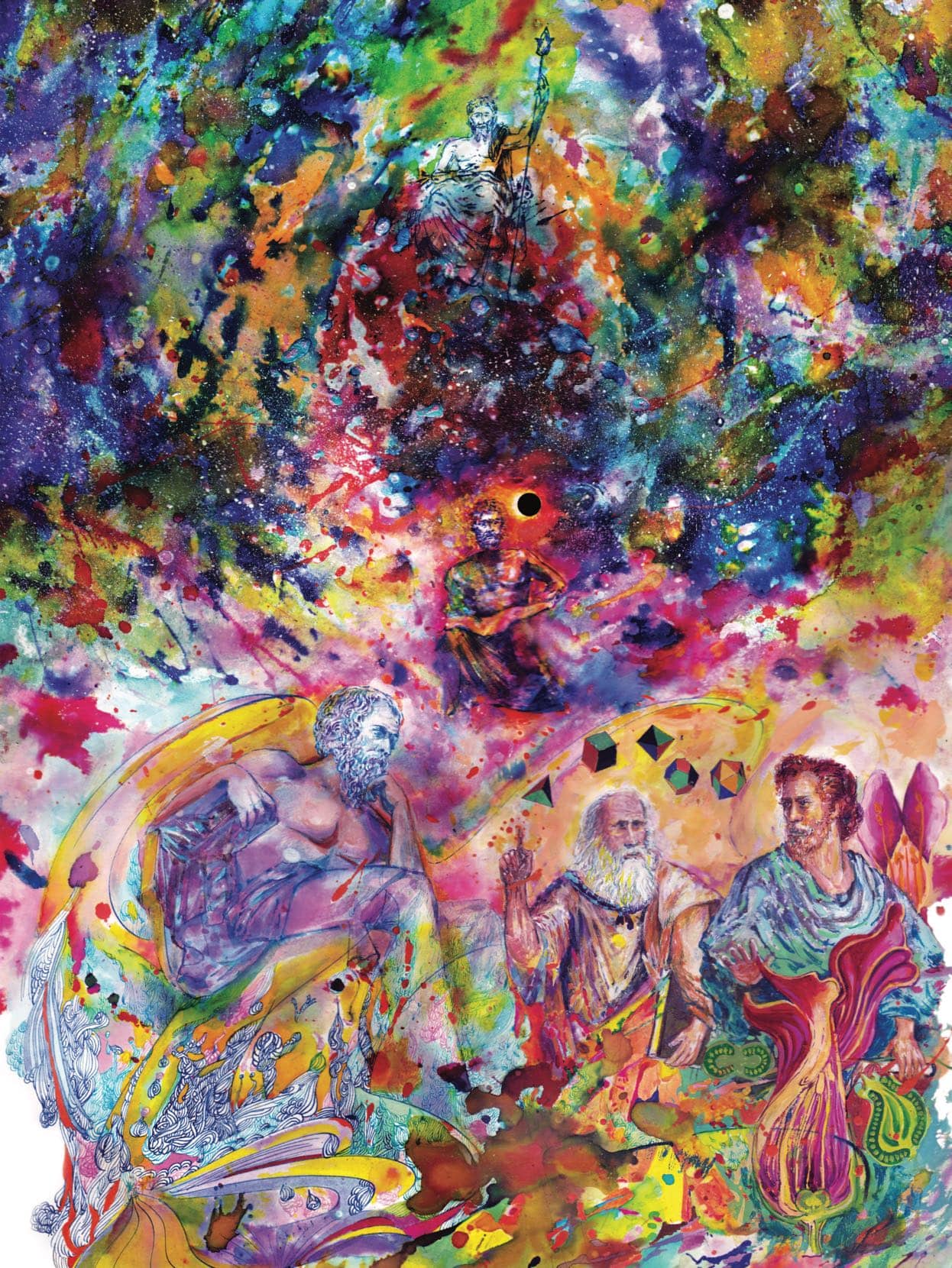
Why do we think of philosophy originating with the ancient Greeks? After all, it’s clear that the ancient Egyptians, who preceded Pythagoras and Plato, Parmenides and Aristotle, by 2,500 years, practiced wisdom too: “The power of Truth and Justice is that they prevail,” reports The Wisdom of Ptahhotep from around 2350 BCE.
In his History of Western Philosophy (1945), Bertrand Russell argued that it’s right to think of philosophy beginning in the sixth century BCE with the Greeks (in Miletus, a Greek colony in what is now Turkey), because it was only then that philosophers began to distinguish thought from theology. As is often the case in his entertaining volume, though Russell was making a point rather than making a case. After all, the thinker who is called the first philosopher, Thales, is remembered for remarking, “All things are full of gods.”
In A New History of Western Philosophy (2004-7) the Oxford philosopher Anthony Kenny proposes that philosophy really begins with Aristotle (384-322 BCE), because Aristotle was the first philosopher to systematically summarize the teachings of his predecessors in order to criticize them. I think there is something in Kenny’s case, because to systematize is a new departure. It’s an approach that Aristotle’s great teacher, Plato, didn’t adopt.
この記事は Philosophy Now の June/July 2020 版に掲載されています。
7 日間の Magzter GOLD 無料トライアルを開始して、何千もの厳選されたプレミアム ストーリー、9,000 以上の雑誌や新聞にアクセスしてください。
すでに購読者です ? サインイン
この記事は Philosophy Now の June/July 2020 版に掲載されています。
7 日間の Magzter GOLD 無料トライアルを開始して、何千もの厳選されたプレミアム ストーリー、9,000 以上の雑誌や新聞にアクセスしてください。
すでに購読者です? サインイン

Metaphors & Creativity
Ignacio Gonzalez-Martinez has a flash of inspiration about the role metaphors play in creative thought.

Medieval Islam & the Nature of God
Musa Mumtaz meditates on two maverick medieval Muslim metaphysicians.

Robert Stern
talks with AmirAli Maleki about philosophy in general, and Kant and Hegel in particular.

Volney (1757-1820)
John P. Irish travels the path of a revolutionary mind.

IT'S A WONDERFUL LIFE
Becky Lee Meadows considers questions of guilt, innocence, and despair in this classic Christmas movie.

"I refute it thus"
Raymond Tallis kicks immaterialism into touch.

Cave Girl Principles
Larry Chan takes us back to the dawn of thought.

A God of Limited Power
Philip Goff grasps hold of the problem of evil and comes up with a novel solution.

A Critique of Pure Atheism
Andrew Likoudis questions the basis of some popular atheist arguments.

Exploring Atheism
Amrit Pathak gives us a run-down of the foundations of modern atheism.